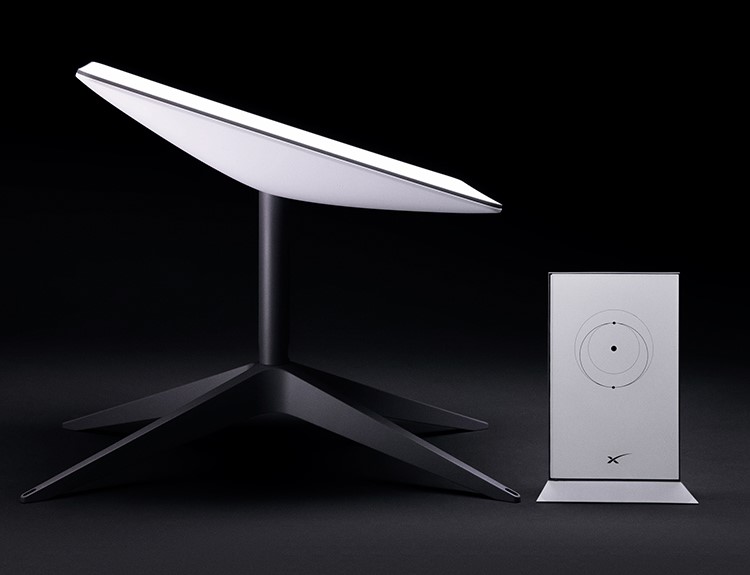
Elon Musk says that SpaceX hopes to complete work on the Starbase launch pad and launch tower "later this month," with more tests in December and "hopefully" an orbital Starship launch attempt in January.
Musk: "In order for life become multiplanetary we'll need maybe 1000 ships or something like that."
Musk emphasizes that NASA selected Starship for the HLS program: "Because of the mass transport capabilities ... to actually have a permanently occupied base on the Moon."
Musk says SpaceX is "not assuming any international collaboration" for Starship development, as "we're building it right now" and "we're really pulling from internal funds."
Musk says that, while the first Starship orbital flight attempt may not succeed, he is "confident" the rocket will reach orbit in 2022.
"We intend to have a high flight rate next year."
"We intend to have a high flight rate next year."
Musk, asked about SpaceX's work on radiation protection for people in space, says "there is always some risk going into deep space, and we definitely wouldn't want to be traveling when there's like 10 solar storms or anything."
Musk: "Once you're on the moon, of course you're protected by the moon below you and then you can put a lot of lunar regolith on top of whatever the research station roof would be."
Musk says Starship's radiation protection "is going to be trickier" but that the problem is not "insurmountable."
Musk, asked for an update on sending people to Mars, says "the first thing we'd want to do is confirm that we can land the ship safely on Mars."
SpaceX would likely "land 2 or 3" Starships on Mars "before sending people."
SpaceX would likely "land 2 or 3" Starships on Mars "before sending people."
Musk: "Eventually the Earth will, if you wait long enough, become uninhabitable. So in the long run we're obviously all dead."
Musk: "If we've got large rockets that could potentially do something about" an extinction event on Earth, "then that could one day save billions of people."
Musk: If humanity becomes a multiplanetary species, then we can send robot probes to nearby star systems "and try to figure out what's the meaning of life, and what's going on, and are there any aliens out there?"
Musk reiterates that SpaceX is "expecting our license approval from the FAA around the end of the year," which "probably" means Starships orbital launch attempt is "in January or February."
Musk: SpaceX's Raptor "engine build rate is currently the biggest constraint on how many" Starship rockets the company can build.
Musk: SpaceX aims "to do hopefully a dozen" Starship launches in 2022.
Musk adds that SpaceX intends to complete Starship's "test flight program next year" and aims to launch "real payloads in 2023."
Musk, asked about maturing cryogenic propellant technology for Starship lunar flights, says the rocket "is very well insulated" and would use a depot to transfer propellant, adding that SpaceX is "pretty good at docking at this point" given the experience of Dragon and the ISS.
Asked about SpaceX's "planetary protection plans for Mars," Musk notes that "it's not like we're launching to Mars really soon ... Mars is a ways off."
Musk: "You wouldn't want to sort of spread biological debris all over Mars, but we will have to put it somewhere if there are people going, and then just make sure we try to contain that."
Q: What are the biggest threats facing humans on Earth?
Musk: "One of the bigger risks on Earth would be if we need to transition to sustainable energy; even if we just count the CO2 capacity in the oceans and atmosphere, eventually we'll run out of hydrocarbons to burn."
Musk: "One of the bigger risks on Earth would be if we need to transition to sustainable energy; even if we just count the CO2 capacity in the oceans and atmosphere, eventually we'll run out of hydrocarbons to burn."
Musk: "I don't know if you guys have seen any evidence of aliens, but I sure haven't."
"I get asked that a lot."
"I get asked that a lot."
Q: What are your plans for making energy, like space-based solar power?
Musk: "Tesla does do solar power and ... there is quite an amazing amount of energy that reaches us from the sun."
Musk: "Tesla does do solar power and ... there is quite an amazing amount of energy that reaches us from the sun."
Musk: "I'm actually pro-nuclear, power-wise, and also hydro and geothermal."
That's all for today's talk.
• • •
Missing some Tweet in this thread? You can try to
force a refresh

















